Share
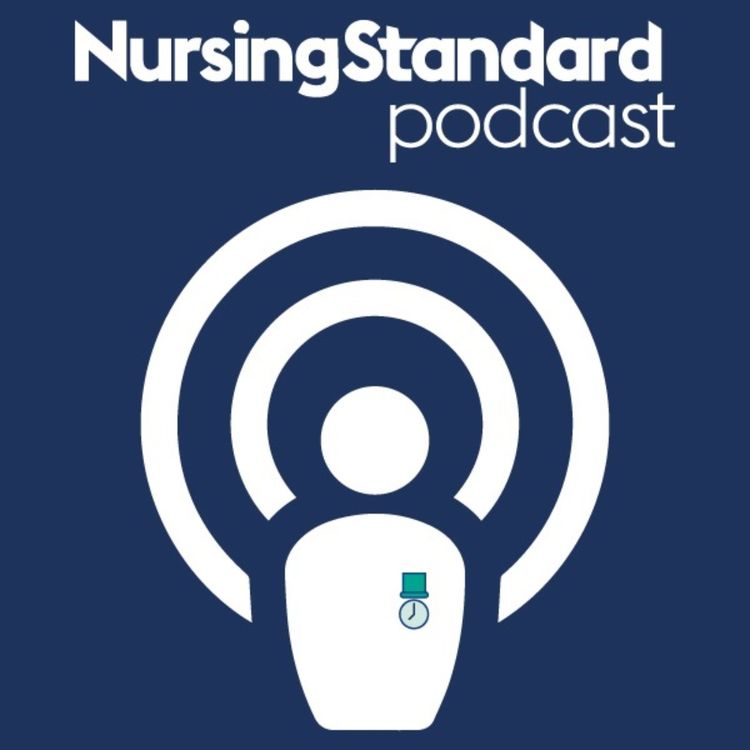
Nursing Standard Podcast
NMC education standards: what they mean for all nurses and students
Season 1, Ep. 4
•
How can a nursing student gain a rich healthcare experience that plays to their strengths? What role do nurses play in training tomorrow’s profession? Lecturers from the University of Surrey join senior nurse editor Richard Hatchett to share their tips on using the standards to benefit all.
More episodes
View all episodes
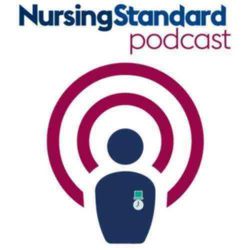
3. Female external catheters: how to start a trial
23:45||Season 16, Ep. 3A nurse-led female external catheter trial proved hugely successful at one trust by almost eradicating incontinence-related dermatitis on two wards.In the latest episode of the Nursing Standard podcast, continence nurse Elinor Howcroft discusses what inspired her to start the trial and the positive impact it had on staff and patients.Ms Howcroft also shares tips and insights into how nurses can roll out similar innovations at their own workplace that can lead to changes in practice and policy.Follow the Nursing Standard podcast on Apple Podcasts, Spotify, Acast or wherever you get your podcasts.For more episodes of the Nursing Standard podcast, visit rcni.com/podcast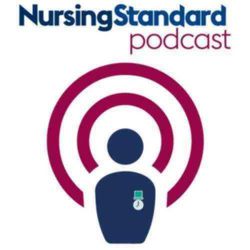
2. General practice: why to enter as a mid or early career nurse
36:15||Season 16, Ep. 2What are the career opportunities in general practice and is it a good place for newly registered nurses to start out?In this episode of the Nursing Standard podcast, Betsi Cadwaladr University Health Board lead primary care nurse Frances Baverstock challenges some common misconceptions about working in general practice, and outlines the opportunities and challenges for nurses in this sector at all stages of their careers.Ms Baverstock is joined by nursing student Ben Jones, who describes how his placement in primary care sparked a passion for general practice nursing.Follow the Nursing Standard podcast on Apple Podcasts, Spotify, Acast or wherever you get your podcasts.For more episodes of the Nursing Standard podcast, visit rcni.com/podcast
1. Band 5 to band 6 nurse roles: how do you decide when to step up?
30:38||Season 16, Ep. 1How do you decide when the time is right to step up from band 5 to band 6?For many nurses, the move to a band 6 role is seen as a natural step within a few years of registering, but it is not for everyone. Moving from band 5 to 6 may mean more money, but it could also mean less flexibility.The latest episode of the Nursing Standard podcast looks at the differences between a band 5 and a band 6 role, the skills and experience required at band 6, and what to do if you are thinking about making the step up.Our podcast guest Charlotte Collings, lead nurse for staffing and workforce at The Princess Alexandra Hospital NHS Trust in Harlow, Essex, offers advice on what to consider, including the difference in pay, the impact on your work-life balance and flexible working opportunities, and whether taking a band 6 role will mean less patient contact.In the episode, Ms Collings explains how to develop your leadership skills in preparation for a band 6 role, why it is so important to have a mentor, and how using your nursing networks can help advance your career.Follow the Nursing Standard podcast on Apple Podcasts, Spotify, Acast or wherever you get your podcasts.For more episodes of the Nursing Standard podcast, visit rcni.com/podcast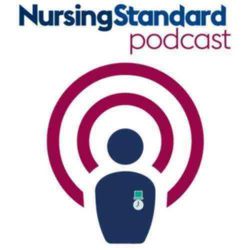
14. Who is your unsung nursing hero of 2025, and why?
15:20||Season 15, Ep. 14Who is your unsung nursing hero of 2025, that person you work with who has your back and deserves recognition?In the final Nursing Standard podcast episode of 2025, previous guests including Queen’s Nurse Caron Sanders-Crook and RCN Scotland Nurse of the Year Kirsty Cartin tell us who they think should be applauded for the work they have done over the past 12 months.From the nursing lecturer who is ‘a prime example of what a mental health nurse should be’, to the social care nursing leader who has made ‘a profound difference to the profession’, their nominees have all made the working lives of nurses a little easier.Follow the Nursing Standard podcast on Apple Podcasts, Spotify, Acast or wherever you get your podcasts.For more episodes of the Nursing Standard podcast, visit rcni.com/podcast
13. ‘Biased’ decisions and mistrust: what went wrong at one NHS trust?
25:33||Season 15, Ep. 13Nurses’ distrust of senior management comes under the spotlight in this week’s episode of the Nursing Standard podcast, as nursing staff at one London trust reported feeling suspicious of managers making ‘biased’ decisions based on close relationships.RCNi content editor Alistair Mason and senior journalist Shruti Sheth Trivedi also discuss a medicines management error linked to the death of a patient, as well as the new NHS uniforms.University of Glasgow senior research associate Simon Walker also joins the podcast to highlight the important issue of suicide among nurses, and how to address it through occupational health.Follow the Nursing Standard podcast on Apple Podcasts, Spotify, Acast or wherever you get your podcasts.For more episodes of the Nursing Standard podcast, visit rcni.com/podcast
12. Are cuts to nurse bank shifts putting patient safety at risk?
22:27||Season 15, Ep. 12The latest Nursing Standard podcast discusses an NHS trust’s decision to restrict bank shifts, news of a chief nurse being reinstated to her role following suspension, and free tea and coffee being scrapped for one trust’s staff, among other hot topics.For more episodes of the Nursing Standard podcast, visit rcni.com/podcast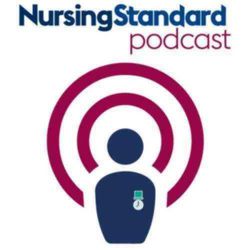
11. How to write a reflective account for revalidation
28:48||Season 15, Ep. 11How do you write a reflective account for revalidation – and how often should you reflect as a busy nursing professional?This episode of the Nursing Standard podcast looks at the reflective elements of the NMC’s revalidation requirements, which include writing five such accounts every three years.Our podcast guest, Queen’s University Belfast senior lecturer Barry Quinn, also argues that reflection is something that should be done on an ongoing basis for its own sake, and when done well, can benefit a nurse’s practice and mental well-being. In the episode, Dr Quinn explains how nurses can work structured reflection into their daily practice, and offers practical tips to help nurses complete their reflective accounts for NMC revalidation.Follow the Nursing Standard podcast on Apple Podcasts, Spotify, Acast or wherever you get your podcasts.Use RCNi Portfolio to store and track your reflective accounts and discussionsFor more episodes of the Nursing Standard podcast, visit rcni.com/podcast
10. Two full-time jobs: why would a nurse risk their registration?
15:28||Season 15, Ep. 10Working two full-time jobs: why would a nurse risk their registration?This week’s episode of the Nursing Standard podcast discusses the case of a nurse who was suspended after secretly working two full-time jobs. RCNi content editor Alistair Mason and senior journalist Shruti Sheth Trivedi also discuss the Nursing and Midwifery Council’s proposed registration fee rise, and the government’s recommendation that NHS staff on Agenda for Change contracts should get a below-inflation 2.5% pay rise in 2026-27.For more episodes of the Nursing Standard podcast, visit rcni.com/podcast
9. How can nurses help combat the spread of health misinformation?
24:30||Season 15, Ep. 9How can nurses help to counter the spread of health misinformation?Birmingham City University senior nursing lecturer Scott Colton believes nurses are in a unique position to help intervene with patients who may be getting poor quality information online and help them to make informed healthcare decisions.In the latest episode of the Nursing Standard podcast, Mr Colton describes what he believes is behind the spread of misinformation, how nurses can spot patients who may have been influenced by it and what they can do to engage with them.For more episodes of the Nursing Standard podcast, visit rcni.com/podcast